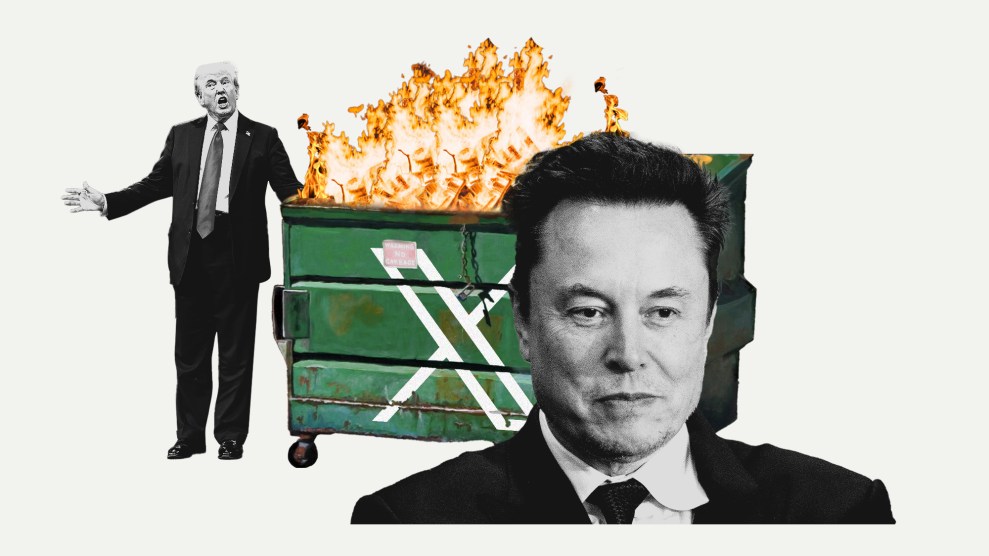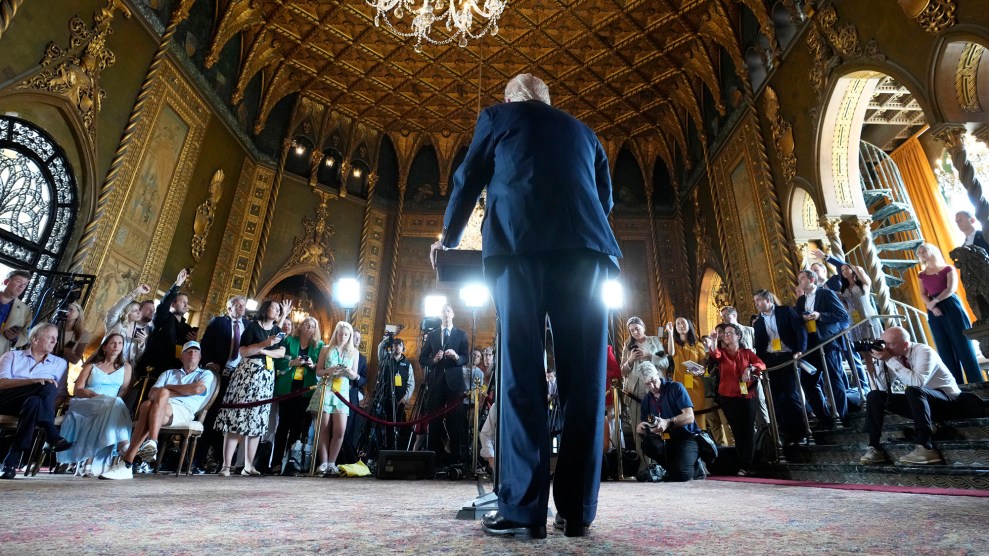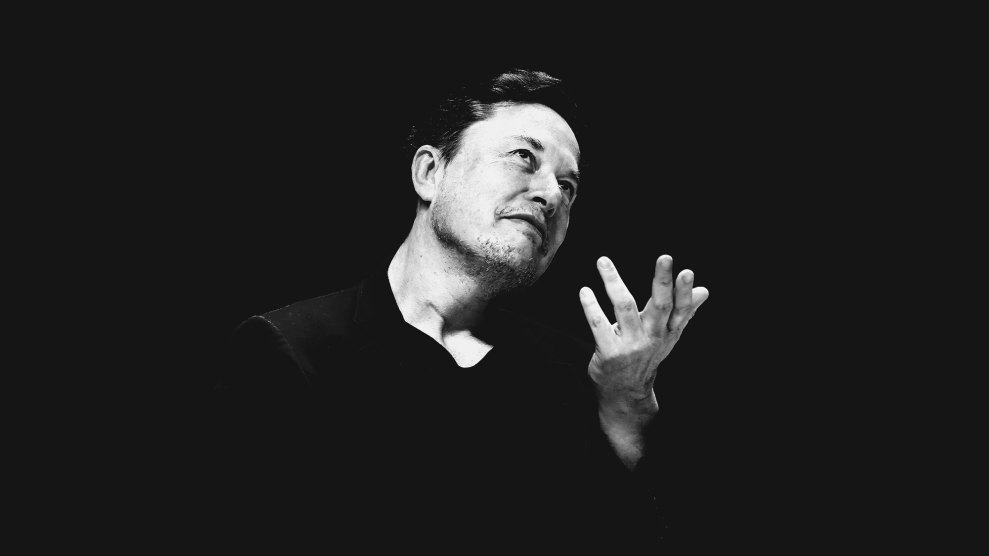
Mother Jones; Michael Ciaglo/Getty; Tom Williams/CQ Roll Call/ZUMA
A heavily publicized Twitter conversation between Elon Musk and Donald Trump on Monday night began with an immediate bed-shitting technical crash. When things finally kicked off 42 minutes later with a much smaller audience, Musk blamed a Distributed Denial-of-Service (DDoS) attack, which did not appear to be true, as the rest of his site continued to function as normal. In the time the platform struggled to serve video of the event, however, a deepfake on YouTube purporting to show a livestream of a gray-looking Musk addressing a factory audience attracted 200,000 viewers to a channel running a crypto scam.
Trump was slurring his words and seemingly lisping.
Trump and Musk’s conversation on Spaces, X’s live broadcast service, had been promoted for weeks, both by the two men themselves and by secondary characters looking to glom onto the massive audience it promised to attract. As the stream froze and repeatedly crashed, some of those characters expressed profound disappointment.
“Not available?????” tweeted conservative personality Glenn Beck. “I planned my whole day around this. I don’t want to miss a word.” (Meanwhile, the leftist Twitch celebrity Hasan Piker, who had successfully logged into the Space early, carried audio of it live on his stream, offering color commentary and occasional hoots of boredom; at least 200,000 people watched part of his presentation.)
Although two sources inside Twitter came forward to tell the tech site the Verge that there was no DDoS attack and that Musk appeared to be lying, conspiracist Alex Jones, who had promised live coverage on Infowars, concluded Musk was likely telling the truth. “When you’ve got a really big guest, you might not want to announce it,” he said solemnly, “because that’s when they attack.” Jones pinned responsibility for the claimed attack on the government, saying that it was “Cyber Command doing this,” possibly at the behest of the EU and the UK. (There is no evidence Cyber Command, a division of the Department of Defense, was involved.)
Amid the technical difficulties, the fake YouTube livestream purporting to carry the conversation (but instead showing an AI-generated Musk pontificating about Trump’s qualifications and the national debt) easily nabbed an audience of at least 200,000. Shayan Sardarizadeh, a BBC journalist, was one of the first to note the imposter feed; sometime after he tweeted about the video, it and the channel promoting it were taken down by YouTube.
When Musk and Trump finally began their conversation, about 1.3 million people appeared to be turning in—far short of the 8 million concurrent users Musk boasted had successfully listened to a test conversation earlier on Monday. The two men’s exchange trod fairly familiar ground. Musk told Trump his actions after the assassination attempt were “inspiring.” Trump, in a lengthy reminiscence, said that being shot at was “not pleasant” and that the ear, where he was shot, is, as doctors told him, “a very bloody place.”
The men agreed that illegal immigration is bad and that “really bad people” within the government are, as Trump put it “more dangerous than Russia and China.” They also agreed that World War III could be imminent—not a reassuring sentiment coming from two people who could be involved in starting it. And Trump reiterated his plan to “close the Department of Education” during his second term, a proposal also supported by Project 2025.
Other lowlights included Trump’s accusation that the Harris campaign is carrying out a “disinformation campaign” about her record on the border, a claim for which he provided no evidence. Trump also contended that migrant caravans of “nonproductive people” were being sent to the US by foreign heads of state, telling Musk that “you would do it, and so would I.”
“They’re also getting rid of murderers and drug dealers and the people who are really brutal people,” he expounded, as he promised to bring about “the largest deportation in the history of this country.”
Trump was slurring his words and seemingly lisping throughout the conversation. After S.V. Date, a Huffington Post reporter, asked the Trump campaign about this speech pattern, he tweeted their verbatim response: “Must be your shitty hearing. Get your ears checked out.” (Campaign spokesperson Steven Cheung did not respond to a separate request for comment.)
The conversation seems unlikely to move the needle for voters, but it did seem to preview a possible future partnership for Trump and Musk. Trump, seemingly in a reference to mass layoffs Musk engineered at Tesla in April, complimented Musk on being “the greatest cutter,” and suggested he would be “very good” at cutting government spending.
“I would be happy to help out,” Musk replied.

















